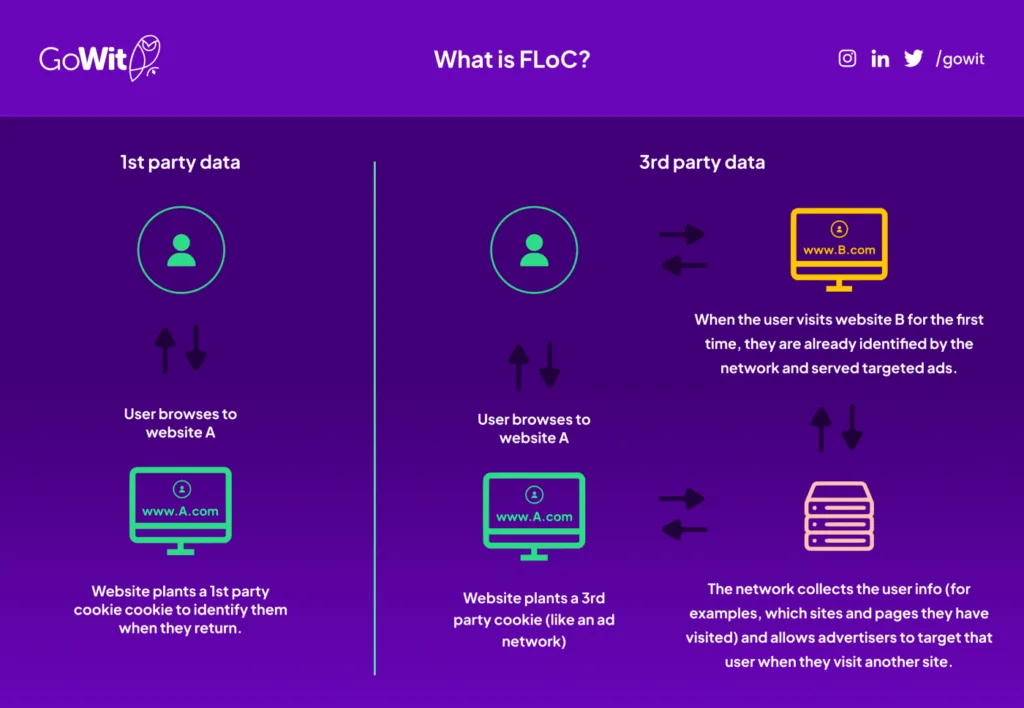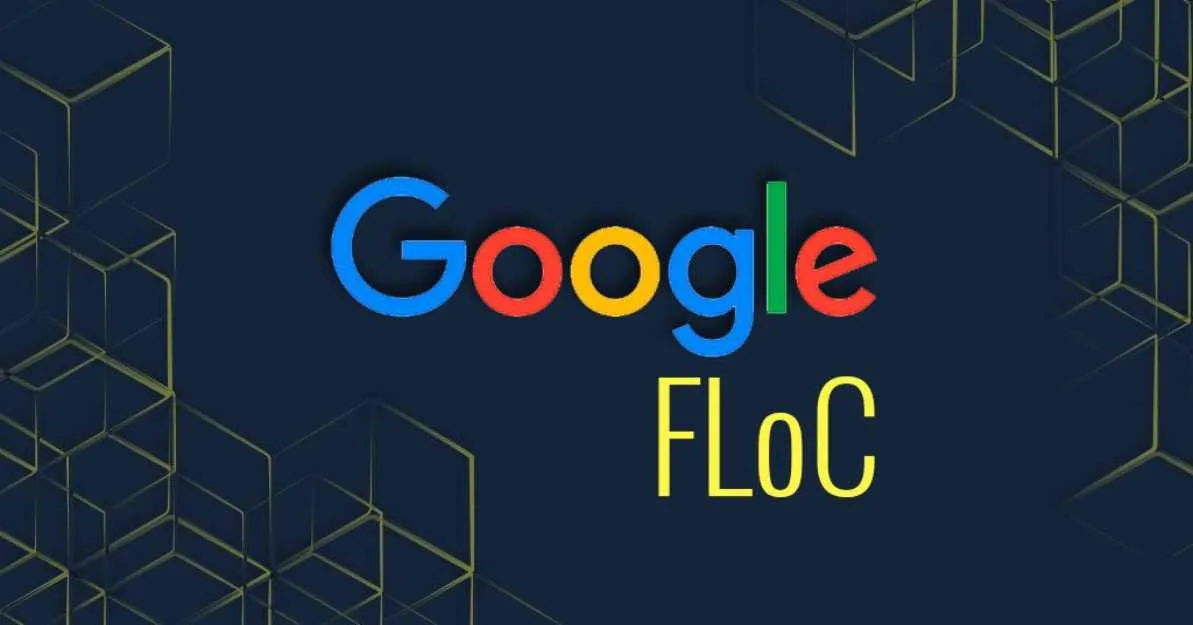In early 2021, Google shared insights about the company’s future in a blog post titled “Building a privacy-first future for web advertising”. (Bindra, 2021) Google described for the first time how display advertising will function after third-party cookies are completely phased out in 2023. An elementary component of the desired privacy sandbox is the so-called Federated Learning of Cohorts (FLoC) method.
FLoC’s Cohort Algorithms
In January 2020, Google announced it will add a new API called Federated Learning of Cohorts (FLoC) to its Chrome browser. The aim of FLoC is to deliver interest-based advertising without compromising the privacy of users with cookies. The FLoC API is based on an algorithm that assigns the browser user to different cohorts. Members of a cohort, which are also called interest groups, show similar online behavior.
Federated Learning of Cohorts: How Does It Work?
FLoC is still in an experimental state to date. In basic technical terms, it works as follows:
On the basis of the browser history, a user should be assigned to a cohort ID that resonates with her browsing interests. So that the user cannot be recognised using this ID, she must share this ID with at least x other Chrome users (As of Q4 2021, there is no specific number).
FLoC from the Publisher Perspective

There will no longer be a way for publishers to enrich their first-party data with third-party data providers. Publishers’ first-party data will lose its value, which will impact their earnings negatively. FLoC and the privacy sandbox project can result in unfair competition between Google’s ad products, which account for the majority of Google’s income, and other ad platforms. In light of the current situation, growing first-party data becomes increasingly important and urgent.
FLoC and Data Protection
Federated Learning of Cohorts may seem like the perfect solution for dividing browser users into interest groups without impeding too much on their privacy. The preparations for the full implementation of FLoC in Chrome are progressive in the USA, while in European Economic Region FLoC is still under debate and cannot run origin tests due to its unclear compatibility with GDPR. (Schiff, 2021) Considering the European legal situation on data protection and privacy, this is by no means the only point of contention: the cohort ID, which links users to interest groups could be considered “personal data”. The processing of the data that is collected and used to generate cohorts could also violate GDPR guidelines, unless Google obtains the user’s consent.
Blocking FLoC?
Some sites such as https://amifloced.org/ try to shed a light on whether you are in trial cohort of FLoC and how to block FLoC as an end-user, as well as a publisher.
Do users have the option to block FLoC?
Yes, they can. In Google Chrome’s settings menu manually opting out should be possible if not third-party cookie blocking should be enough to stay out of FLoC as an end-user.
Do website owners have the option to block FLoC?
Website owners have the opportunity to unsubscribe from Federated Learning of Cohorts.

AdTech service providers are welcomed in the test phase
Google Ads teams found that FLoC can replace third-party cookies effectively when generating interest-based audiences. FLoC conducted tests addressing in-market and affinity audiences and found that advertisers can expect at least 95% of conversions (compared with third-party solutions). Over the past year, several members of the AdTech community have also made tests and outed their opinions including Criteo, Nextroll, Magnite and RTB House. (Schiff, 2021b)
What are the others thinking?
In the meantime, Microsoft has turned off FLoC tracking in Microsoft Edge. (Abrams, 2021) WordPress also suggests treating FLoC as a security concern and adding code to disable FLoC on its blogging platform. Among others is Amazon with Amazon main page, the supermarket subsidiary Whole Foods, but also Woot.com. Because Amazon is known to be a great power in online shopping, Google is hereby losing important data streams. Other blockers include Firefox, Joomla, Drupal, DuckDuckGo(an adblocker), Vivaldi, and GitHub. (Bohn, 2021)However, Twitter has already referenced FLoC in its source code.
On the publisher side, many haven’t expressed an opinion, we know The New York Times is open to testing FLoC, whereas the Guardian opted out of FLoC testing already.
CONCLUSION
A lot of questions still remain about FLoC, since it is replacing technology that is decades old. Google has not specified what types of cohorts it plans to build, how many cohorts will exist, or how many browsers per cohort there will be. Chrome is the only browser that will adopt FLoC at the time of release. How will advertisers on Google’s platform reach Safari users for example, which accounts for over a third of the US browser market? Will Google only allow advertising for FLoC-derived groups on Chrome, making it a closed system?







